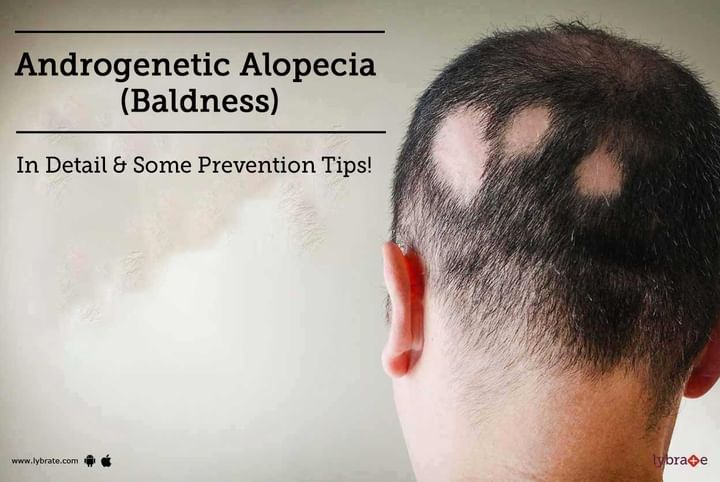Androgenetic Alopecia (Baldness) In Detail & Some Prevention Tips!
Alopecia or hair loss is a very common problem for both men and women. Androgenetic alopecia refers to the male pattern or female pattern hair loss. In the case of some people, Androgenetic alopecia may be a hereditary problem.
In the case of androgenetic alopecia, hair starts falling usually from the crown region. Male pattern baldness is different from female pattern baldness. In the case of female pattern baldness, hair falls from all over the scalp region and not just the region above the temples.
Many causes are responsible for Androgenetic alopecia. Genetic reasons, hormonal disorders, increased production of DHT (Dihydrotestosterone) and also ageing can make conditions worse.
Androgenetic alopecia can be a very embarrassing problem. There are certain natural as well as medical ways to prevent androgenetic alopecia. Some of them are mentioned as follows:
- Try to reduce stress: Stress can increase the secretion of 'cortisol' hormones in your body, leading to a hormonal imbalance, which may result in hair fall. So, reducing stress may help you to prevent excessive hair loss.
- Consider hair transplantation procedure: If you are losing your hair at an alarming rate, then you may consider clinical treatment. The treatment of hair transplantation can help you to prevent further hair loss.
- Change your diet: Include foods such as eggs, fish and walnuts. These foods are replete with protein and Omega-3 fatty acids, which provide your hair with the required nourishment and help you prevent Androgenetic Alopecia.
- PRP treatment. Platelet-rich plasma therapy helps in improving the thickness of the hair by releasing the growth factors needed for hair growth.
Since the primary causes responsible for androgenetic alopecia are hormonal imbalances and genetic reasons, you may consider seeking advice from a dermatologist in order to find the root cause of your problem and undergo the necessary treatments.



+1.svg)
